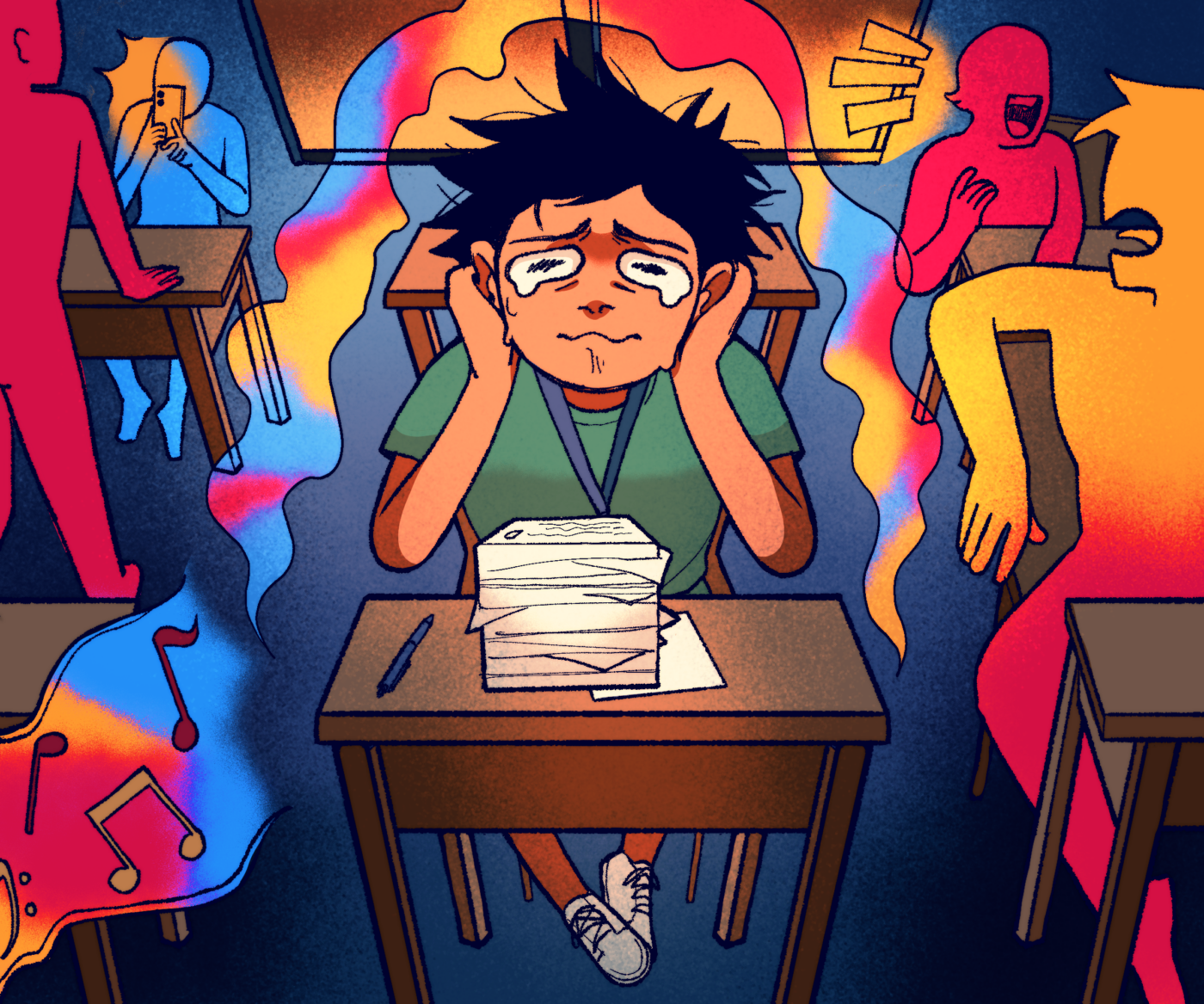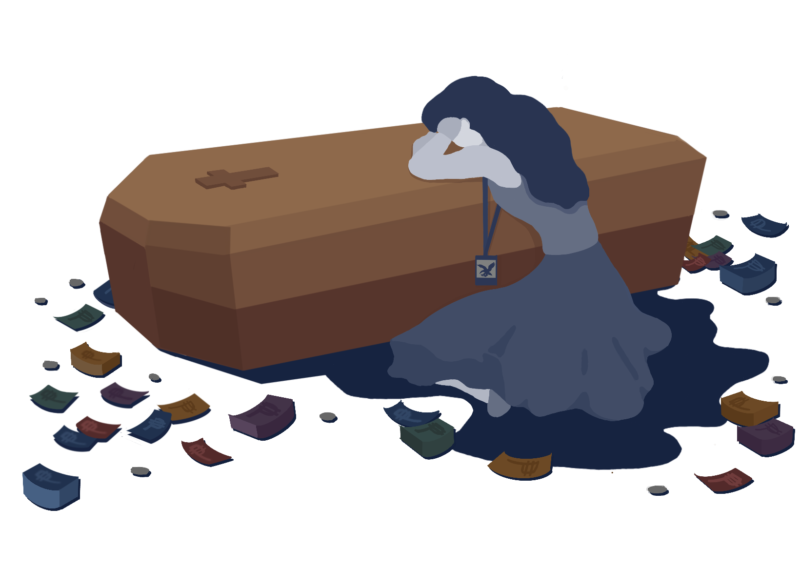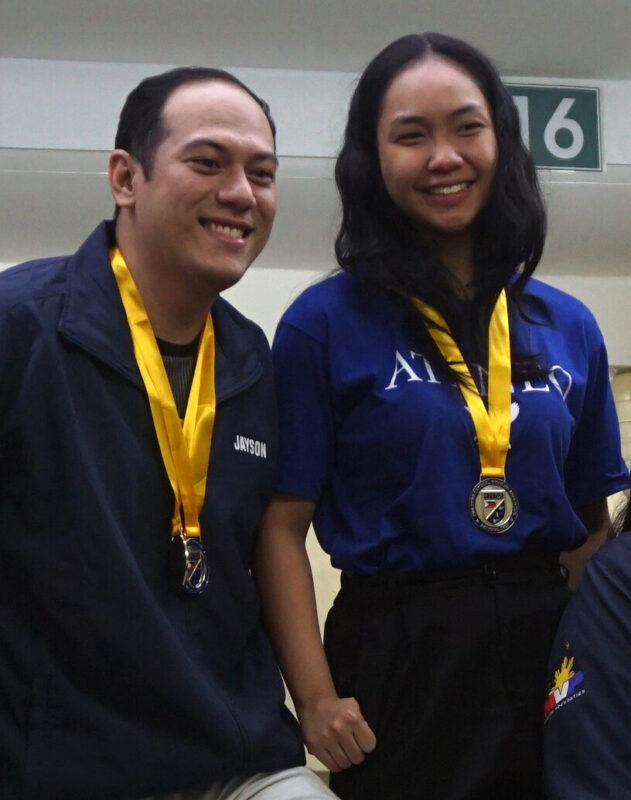NAVIGATING UNIVERSITY life can be daunting for students with neurodevelopmental disabilities (SWNDDs). NDDs are disorders that develop early in life, leading to impairments in intellectual, motor, language, or social skills. These difficulties can make juggling academic requirements and managing sensory sensitivities especially challenging in campus spaces, from bustling hallways to crowded study areas.
According to Sanggunian Commission on Disability Inclusion (CDI) Co-Commissioner Jillian Barreiro, around 70% of Ateneans who answered their consultation survey are neurodivergent. With this, she believes that there is “a group of neurodivergent students” in every class.
Given this number, there persists a critical need to examine whether learning environments on campus are conducive for SWNDDs in the first place.
Minding the blueprint
Having an NDD affects students of all ages, impacting their ability to regulate behavior, develop relationships, and perform executive functions. While Barreiro stresses that there is no standard manifestation for NDDs, she notes that many SWNDDs struggle to concentrate during their classes.
Carms Miranda (3 AB DS) is among those students. Diagnosed with Attention Deficit Hyperactivity Disorder (ADHD), she admits how she finds it hard to start assignments and focus during lectures when without medication. Reflecting on her diagnosis, she shares that it helped her gain a clearer understanding of herself and her struggles with learning growing up.
“I felt relieved that it wasn’t just me being stupid because that’s what I thought my entire life. […] It literally is just like, there’s a thing in your brain that doesn’t let you focus as [efficiently] as people that don’t have ADHD,” she explains.
Likewise, Toula* compares having ADHD to having a “block” in their brain, citing an unexplainable “lethargy” as a factor that hampers their learning the most. They also admit being pressured to present themselves in a certain way in front of others. “[Having ADHD feels like] more people are watching you. They expect you to be mature [and] developed,” they explain.
As such, Miranda and Toula avoid mentioning their condition in class, as they do not want it to be seen as an excuse. However, both emphasize the importance of understanding from professors, with Miranda pointing out the “demoralizing” feeling when professors undermine the learning hurdles faced by students like them.
Designing the space
As Miranda and Toula continue to shed light on their obstacles in managing their academics while having ADHD, they also assert that current spaces and initiatives are insufficient to accommodate their needs.
Certain campus spaces can feel overwhelming and uncomfortable to some due to heightened sensory input. In particular, SWNDDs are prone to overstimulation in places that others may deem as typical.
Described as an overwhelming experience, sensory overload or overstimulation occurs when the brain struggles to process too much sensory information. It can be triggered by environmental factors, including bright lights and crowded hallways. However, even subtler sensory input can affect a student’s ability to focus.
“It could [just] be [the] rustling of the leaves outside, and then you completely lose your attention—for me at least. That’s why it’s always been a very difficult time just focusing in school,” Miranda explains.
For some, the sense of touch also plays a role in overstimulation. Toula notes that specific clothing materials may be too warm or irritating on their body, distracting them from their lessons.
When someone with NDD experiences overstimulation, they may feel discomfort and anxiety; however, more challenges may occur depending on the NDD. For instance, sensory overload commonly leads to difficulties in concentration for students with ADHD, and stress and withdrawal for students within the autism spectrum.
Miranda explains that when others are noisy in the middle of class, her attention shifts to what is happening around her. “It just kind of happens like that,” she says. “It’s not something you can avoid. It just so happens that your attention is [already] there.”
Given these instances of overstimulation, Miranda remarks that it is difficult to find a place to study without being distracted.
Amid the variety of learning spaces, Barreriro says that a lot “don’t work” for SWNDDs due to loudness during peak hours. Miranda and Toula affirm this, citing areas like Matteo Ricci Hall’s second floor and New Rizal Library’s fifth floor as examples.
While Toula and Miranda are both diagnosed with ADHD, what they consider good learning spaces differ slightly. Silence helps Miranda focus, while Toula prefers areas with a little chatter. This diversity among student preferences highlights the importance of sensory-friendly spaces and University-wide policies that cater to the students’ varied needs.
Room for improvement
In the Ateneo, growing awareness of NDDs over the years has led to significant improvements in the availability of supportive initiatives. University Physician Norman Dennis E. Marquez, MD mentions that the University has professionals with basic training in managing the needs of SWNDDs.
In line with this, Miranda notes that she would always go to the Office of Guidance and Counseling for concerns about her condition. Additionally, Barreiro states that CDI also aids students in informing their professors about their disabilities and any requests.
However, Barreiro emphasizes that the provision of accommodations in a class depends on a professor’s willingness. Toula recalls a time when their professor revealed that the faculty does not have training on accommodating neurodivergent students despite wanting to do so.
Thus, amid the increased awareness within the community, Toula believes tangible action is still lacking. As such, they suggest that learning spaces should have bigger tables for ample areas to work.
Meanwhile, Miranda hopes for more noise regulation so that these spaces can be “catered to individual people.” To do this, quiet zones with minimized sensory input and a calming environment can be introduced on campus.
Aside from this, Barreiro believes that these challenges in learning are often rooted in auditory processing. As such, she underscores the need for SWNDDs to have other resources outside the classroom because many cannot listen and take notes at the same time.
Ultimately, she hopes that institutionalized policies concerning SWNDDs are created. According to her, there should be a safe spaces declaration for Ateneans with disabilities, just as there is one for the prevention of gender and sexual misconduct.
“[I]t would not only be helpful in terms of stepping into the inclusivity but also [in] protecting these students that we should be able […] to see them represented in the structures that we have […] because it really is what universities should do,” she expounds.
Subsequently, Barreiro states that the CDI is focusing on the legislation of policies for SWNDDs and “direct collaboration with the school administration.”
Recognizing these gaps, Dr. Marquez also asserts that while the Ateneo is not fully equipped to care for SWNDDs comprehensively, the University is committed to assisting their education.
The challenges SWNDDs face in these learning spaces highlight the significance of integrating policies and initiatives into the system to ensure that students are better supported and learning spaces are truly inclusive.







